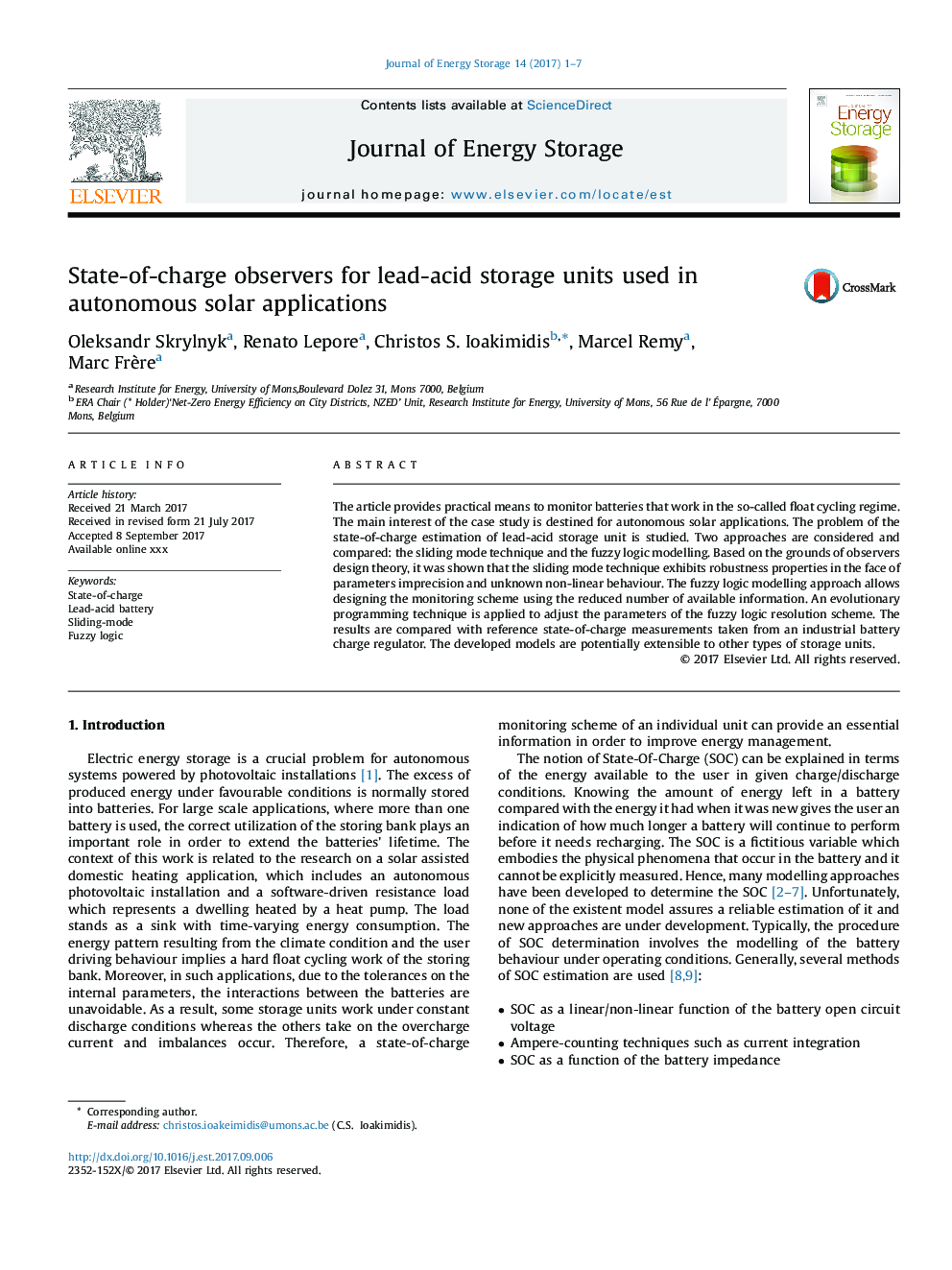| Article ID | Journal | Published Year | Pages | File Type |
|---|---|---|---|---|
| 5127233 | Journal of Energy Storage | 2017 | 7 Pages |
â¢The monitoring of lead-acid batteries of an autonomous solar application in the float cycling regime is presented.â¢Two approaches are considered and presented: the sliding mode and the fuzzy logic modelling with the first showing robustness properties.â¢An evolutionary programming technique is applied to adjust the parameters of the fuzzy logic resolution scheme.â¢Final results are compared with reference state-of-charge measurements and it is suggested that the developed models are potentially extensible to other types of storage units.
The article provides practical means to monitor batteries that work in the so-called float cycling regime. The main interest of the case study is destined for autonomous solar applications. The problem of the state-of-charge estimation of lead-acid storage unit is studied. Two approaches are considered and compared: the sliding mode technique and the fuzzy logic modelling. Based on the grounds of observers design theory, it was shown that the sliding mode technique exhibits robustness properties in the face of parameters imprecision and unknown non-linear behaviour. The fuzzy logic modelling approach allows designing the monitoring scheme using the reduced number of available information. An evolutionary programming technique is applied to adjust the parameters of the fuzzy logic resolution scheme. The results are compared with reference state-of-charge measurements taken from an industrial battery charge regulator. The developed models are potentially extensible to other types of storage units.
